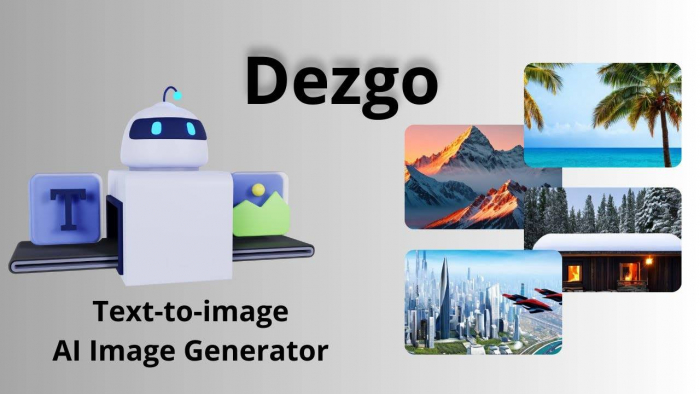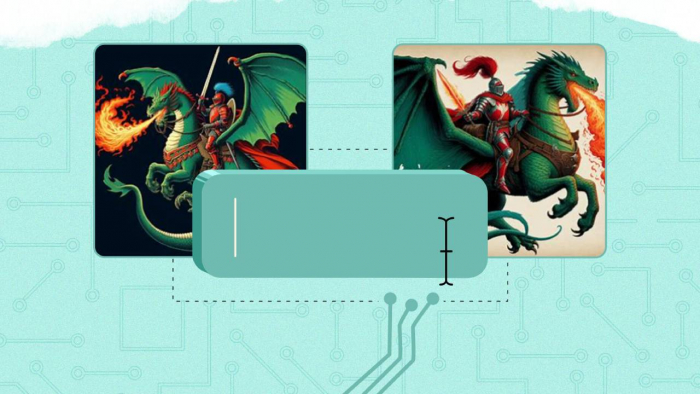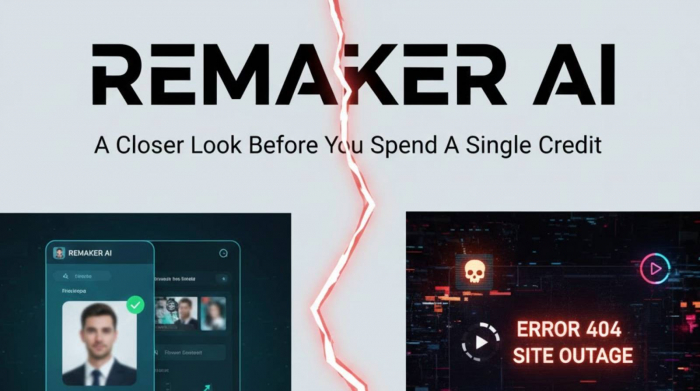Table of Content
- Why Today’s Search Tools Fail Scientific Thinkers
- What Is Consensus AI and Why It’s a Breakthrough
- The Core Promise: "Answers You Can Trust, Backed by Science"
- Behind the Tech: How Consensus AI Actually Works
- From Query to Conclusion: Step-by-Step User Journey
- GPT-Powered Chat in 2025: What’s New, What’s Beta
- Topics Covered: What Can You Ask Consensus AI?
- Research Backing: Where Does the Evidence Come From?
- Top Features That Make Consensus AI Stand Out
- Use Cases in the World
- Feature Spotlight: Claim Ranking and Evidence Confidence
- Is Consensus AI Replacing Literature Reviews?
- Pricing Plans: Free vs Pro
- Student Access, Trials & Academic Discounts
- User Experiences: From Reddit to Product Hunt
- Consensus AI vs ChatGPT vs Elicit: Tool Showdown
- Limitations You Should Know (Unfiltered)
- Upcoming Features: What’s on the Roadmap?
- Trust, Privacy, and Transparency
- The Vision for Academic AI: Where Consensus Fits in the Future
- Final Verdict: Should You Try Consensus AI Today?
- Frequently Asked Questions
Why Today’s Search Tools Fail Scientific Thinkers
Most AI chat tools, from ChatGPT to Perplexity, give fast answers — but not trustworthy ones. Researchers, students, and clinicians often find themselves sifting through unsupported summaries or AI hallucinations. What’s missing is scientific grounding — and that’s where Consensus AI steps in.
What Is Consensus AI and Why It’s a Breakthrough
Consensus AI is a semantic search and summarization engine that delivers evidence-backed answers based solely on peer-reviewed academic research. Unlike ChatGPT, it doesn’t guess — it shows what the science actually says, with citations from verified papers.
_1753349632.png)
As explained in their official overview, it’s “Google Scholar meets ChatGPT — minus the noise.”
The Core Promise: "Answers You Can Trust, Backed by Science"
Instead of vague summaries, Consensus AI gives you:
- Ranked claims based on agreement across studies
- Direct links to the original papers
- AI-generated summaries labeled with confidence scores
The tool’s core mission is to eliminate speculation and replace it with verified academic consensus.
Behind the Tech: How Consensus AI Actually Works
Consensus combines:
- Semantic search to understand your question
- LLM-based claim extraction to summarize study conclusions
- Ranking engine to show how many studies support each claim
- Chat layer (new in 2025) powered by GPT to engage naturally
They index millions of peer-reviewed papers and synthesize answers based on real science, not blogs or news articles.
From Query to Conclusion: Step-by-Step User Journey
Here’s what a search looks like:
- You ask: Does intermittent fasting improve cognition?
- The tool scans studies across PubMed, JSTOR, and other journals.
- Extracts key claims: “8 out of 12 studies support positive cognitive effects”
- Returns a consensus meter and links to sources
- You can then explore deeper using “Ask Paper” or GPT chat
- Effortless Academic walks through this in their demo.
GPT-Powered Chat in 2025: What’s New, What’s Beta
Consensus now includes a GPT-powered conversational layer (see: ChatGPT plugin) that allows you to ask multi-part questions, refine your prompts, and receive structured, evidence-backed responses — complete with citations and hyperlinks.
Topics Covered: What Can You Ask Consensus AI?
Currently, Consensus supports academic literature in:
- Medicine & Public Health
- Psychology & Cognitive Science
- Education
- Environmental Science
- Economics & Social Policy
Coverage is expanding, but as OutrightCRM points out, humanities and law are still underrepresented.
Research Backing: Where Does the Evidence Come From?
Consensus pulls from:
- Peer-reviewed journals (PubMed, Elsevier, etc.)
- Clinical trials
- Meta-analyses
- Systematic reviews
It explicitly avoids blogs, media articles, or forums, which is why it’s trusted by academics and institutions.
Top Features That Make Consensus AI Stand Out
- Claim extraction from research papers
- Consensus score visualization
- Direct citation linking
- Study Snapshot summaries
- “Ask Paper” Q&A on specific articles
- GPT-style chat with evidence grounding
- Bookmarks and reading history
- Export citations manually
- Simple, clean UI built for academic tasks
- Team access for institutions and organizations
Use Cases in the World
For Graduate Students
Accelerate literature reviews and thesis preparation.
For Researchers
Validate hypotheses with updated evidence.
For Journalists
Get quotes and evidence from real studies, not tweets.
For Healthcare Pros
Summarize medical treatments, interventions, and outcome studies.
For Policy Analysts
Support evidence-led decisions with real data.
Feature Spotlight: Claim Ranking and Evidence Confidence
One of Consensus’s strongest innovations is the claim agreement meter. If 80% of papers agree on a claim, it’s flagged as high-consensus. If studies conflict, the tool shows both sides transparently — something ChatGPT and Elicit don’t do.
Is Consensus AI Replacing Literature Reviews?
Not quite. It accelerates literature reviews, especially for early scoping and filtering. Final decisions, critical analysis, and citation formatting still require human effort. But for many, it's become their first stop in the research process.
Pricing Plans: Free vs Pro
As per the pricing page:
_1753349890.png)
Student Access, Trials & Academic Discounts
Students and faculty with .edu or .ac emails can access discounts of up to 40%. Many universities have listed it in their AI toolkits, including University of Northampton.
User Experiences: From Reddit to Product Hunt
- Reddit: “It’s become my daily tool in grad school.”
- Product Hunt: 5.0/5 from researchers and professionals
- Effortless Academic: “For anyone doing a literature review, it’s a game-changer.”
Consensus AI vs ChatGPT vs Elicit: Tool Showdown
| Feature | Consensus AI | ChatGPT | Elicit |
| Peer-reviewed sources only | Yes | No | Yes |
| Citation transparency | Yes | No | Yes |
| Claim ranking | Yes | No | No |
| Study Q&A (“Ask Paper”) | Yes | No | No |
| Chat with science context | Yes | Partial | No |
Limitations You Should Know (Unfiltered)
- No humanities or legal coverage yet
- No PDF upload (coming soon)
- No auto-export to Zotero or BibTeX
- Monthly AI credits on the Free plan
Upcoming Features: What’s on the Roadmap?
From Otio.ai and internal sources:
- PDF uploads with instant summaries
- GPT-4 Turbo chat upgrade
- Research notebook plugin
- Plugin support for Notion and Overleaf
- Expanded field coverage (STEM and social science)
Trust, Privacy, and Transparency
Consensus stores no user data beyond sessions and complies with GDPR. Unlike ChatGPT, every result is traceable to a real source. No ads, no hallucinations — just transparency by design.
The Vision for Academic AI: Where Consensus Fits in the Future
Consensus isn't just an app — it's an AI research assistant aiming to democratize evidence-based thinking. As more tools generate content, it anchors insights in the real world.
Final Verdict: Should You Try Consensus AI Today?
Yes, if:
- You work with research, science, healthcare, or education
- You want citations, not stories
- You need evidence to make decisions
No, if:
- You need creative writing or visual content
- You work in arts, law, or non-digital research
Frequently Asked Questions
Q: Can it write full research papers?
No—it summarizes existing work but won’t write your thesis.
Q: Is it free?
Yes, the Free plan includes 10 summaries per month.
Q: Can I use it for legal research?
Not yet—legal and humanities support is limited.
Q: Does it have a mobile app?
Not currently—browser-based only.
Post Comment
Be the first to post comment!





